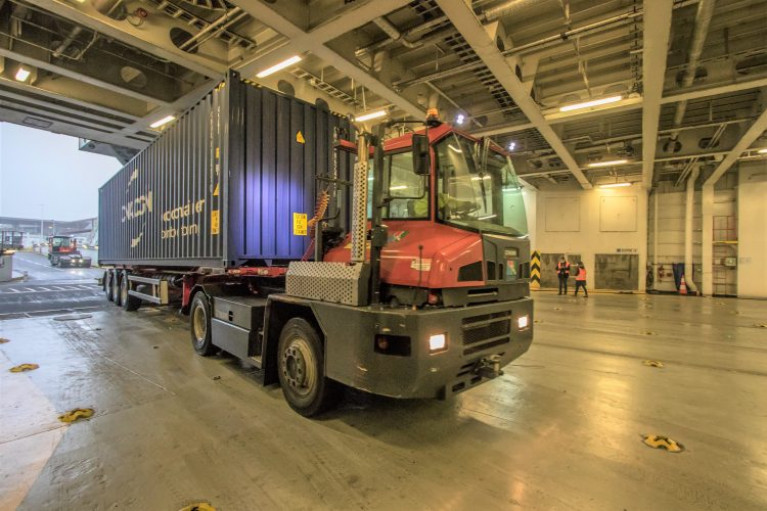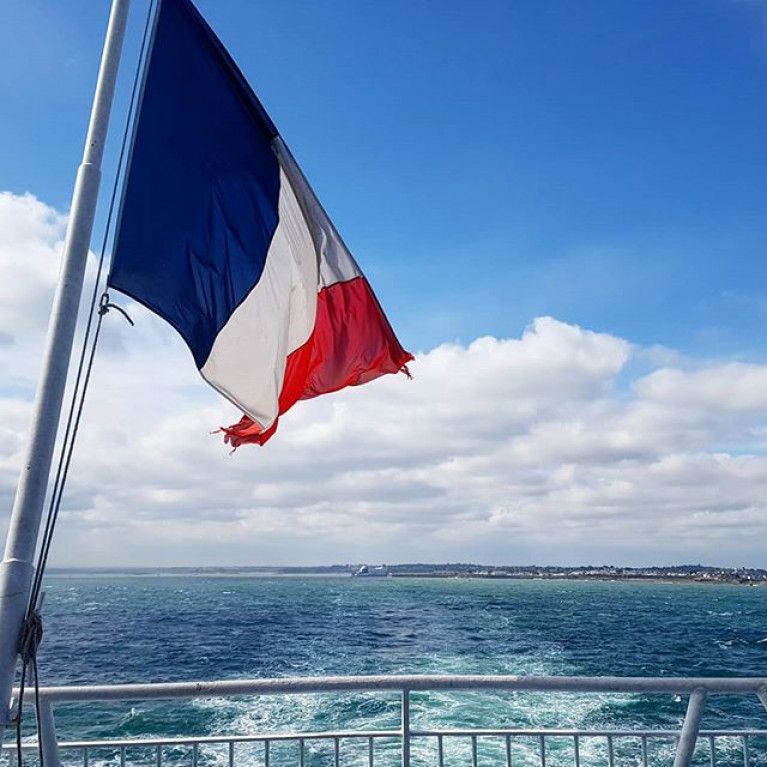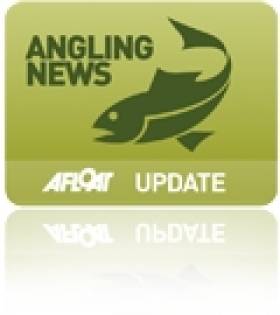Displaying items by tag: partnership
Harland & Wolff Enters Partnership with Austal, Australia to Boost Shipbuilding Business
Shipbuilder, the Harland & Wolff Group has entered a Memorandum of Understanding (MOU) with Austal, an Australian firm, to aid their pursuit of aluminium shipbuilding opportunities.
In Sydney the MOU was signed at the 2023 Indo Pacific Maritime Exposition. The MoU includes the transfer of technology, skills, and shipyard capabilities required to build the next generation of patrol vessels for the United Kingdom for maritime security agencies.
Both parties have identified opportunities in the UK market, including the Border Force vessel replacement programme, and intend to work jointly in a non-exclusive partnership on such opportunities.
Austal Limited Chief Executive Officer Paddy Gregg said the MoU was the first step towards winning new business in the United Kingdom, collaborating with Harland & Wolff, an established manufacturing, services and support company operating in the maritime defence industry.
“Harland & Wolff is an ideal partner for Austal in the pursuit of defence opportunities in the United Kingdom with the facilities, expertise and capabilities to effectively pursue and help deliver new vessels for organisations such as the UK Border Force. We look forward to collaborating with Harland Wolff on new opportunities that leverage Austal’s proven leadership in aluminium patrol boat design and construction.”
John Wood, Group Chief Executive Officer of Harland & Wolff said “I am delighted to have signed this MoU with Austal, a global leader in the aluminium vessel market. As we embark on the next phase of the Company’s growth and development, we will be partnering with Austal not only for the transfer of technology to build aluminium vessels but to also join hands with them when bidding for contracts.
He added "Austal’s skills and decades of experience in the aluminium build space and border security vessels are second to none. I look forward to working closely with them to build the next generation shipyard capability for aluminium vessels in the UK.”
Brittany Ferries's partnership with container giant CMA CGM was finalised in 2021 to support the French ferry company's post-Covid recovery.
It promises complementary English Channel freight transport links, thanks to a ‘fast lane’ solution bringing shorter transit times and increased frequency.
CMA CGM continues to implement agile transport solutions for its customers in a global context of pressurised supply chains
The partnership signed in September, between French ferry firm Brittany Ferries and global shipping and logistics group CMA CGM reached a new milestone on Tuesday, with the first cross-Channel shipment of CMA CGM containers.
Containers were lifted onto special chassis and loaded aboard Brittany Ferries’ Cotentin in the port of Le Havre (where Afloat adds cruiseferry Cap Finistere is berthed: see story). The freight vessel had departed Le Havre for Portsmouth at 16:30 French time.
The first driverless CMA CGM load to be carried by Brittany Ferries across the Channel further strengthens links between the two companies. Thanks to the partnership, conventional articulated lorry loads have already been carried on Brittany Ferries’ Portsmouth – Caen route.
However, CMA CGM Group can now offer its customers a ‘fast lane’ solution for containers, with shorter transit times. There are more available sailings too; four services every week connect Le Havre with Portsmouth.
An ambitious commercial partnership serving both groups’ customers
The partnership creates significant opportunities for passenger and freight shipping, thanks to the respective expertise of CMA CGM Group and Brittany Ferries.
It will permit growth in cross-Channel shipping, cementing France’s position in the sector. It will also allow CMA CGM to strengthen its transportation service between France, the Iberian Peninsula and the British Isles, and will allow Brittany Ferries to further develop its freight and logistics expertise.
Christophe Mathieu, CEO Brittany Ferries said: “This is an important moment in our partnership with one of the world’s biggest shipping and logistics companies. We know that we must adapt to market trends and customer demand in order to prove our strength in a competitive market. This is therefore a welcome milestone and highlights the mutual benefits of working together.”
Mathieu Girardin, CMA CGM’s central director for short sea routes added: “This first shipment demonstrates the dynamism of our commercial partnership with Brittany Ferries, and is a major step as we build our multimodal service linking France, the UK, Ireland and Spain. CMA CGM Group continues to implement innovative and agile solutions to meet the needs of its customers.”
Brittany Ferries and CMA CGM Enter Partnership to Combine Passenger & Freight Transport
Brittany Ferries and the CMA CGM Group, a world leader in shipping and logistics, announced that CMA CGM has agreed to make a €25m investment in the largest ferry company operating under the French flag, including €10m in quasi-equity.
Through this agreement, CMA CGM is seeking to support Brittany Ferries’ post-Covid-19 recovery.
The announcement was made during the Assises de l’économie de la mer event, the largest annual meeting of participants in France’s sea economy.
- Letter of Intent for an investment to support Brittany Ferries’ post-Covid-19 recovery
- Commercial partnership unlocking synergies in freight transport across the English Channel and to the Iberian Peninsula
- Development of LNG excellence in France
The partnership will help to unlock synergies between the two companies in passenger and freight transport. By harnessing the respective areas of expertise of the CMA CGM Group and Brittany Ferries, it will also help promote the development of cross-Channel shipping and underpin France’s position in the sector. Under this agreement, a representative of the CMA CGM Group will join Brittany Ferries’ Supervisory Board.
Synergies in freight shipments across the English Channel and to the Iberian Peninsula
The agreement establishes a commercial partnership between the CMA CGM Group and Brittany Ferries through the use of available cargo space on board Brittany Ferries’ services to the United Kingdom, Ireland and the Iberian Peninsula. The transportation of goods aboard Brittany Ferries’ roll-on roll-off (roro) ships will help expand the CMA CGM Group’s offering in the roro sector for the Atlantic and northern coast of France to destinations in the United Kingdom.
The partnership with CMA CGM will also pave the way for Brittany Ferries to gain more expertise in freight and logistics. It will help the company to adapt more easily to the post-Covid-19 trends in goods transportation, including the transport of unaccompanied trailers, and to offer new transport services so it can better meet the needs of its customers.
Through this agreement, both groups will be able to introduce new ro ro services.
Development of LNG excellence in France
CMA CGM and Brittany Ferries, both of which are committed to developing liquefied natural gas (LNG) to power their ships, will be looking at ways of sharing their LNG knowledge and resources in areas such as training for French crews and safety procedures.
Both companies have also undertaken to introduce more environmentally-friendly shipping and logistics solutions.
Two new LNG-powered ships are due to join Brittany Ferries’ fleet next year and in 2023. The new Ro-pax vessels, to be named Salamanca and Santoña, will operate services between the United Kingdom and Spain.
In addition, Brittany Ferries is about to introduce a new rail freight service to expand its multimodal offering. By year-end 2022 the company will offer its customers an unaccompanied trailer transport service on the Atlantic coast rail network between Bayonne and Cherbourg.
New Fisheries Partnership for the River Shannon
The new group will comprise representatives from both bodies as well as Inland Fisheries Ireland, and will be independently chaired by former Shannon Fisheries Board CEO Eamon Cusack.
The plan is for anglers, fishery authorities and stakeholders to come together to assist in the management of the River Shannon.
At the group's launch in Athlone recently, Cusack said the partnership was working toward ensuring a sustainable yield of fish.































































